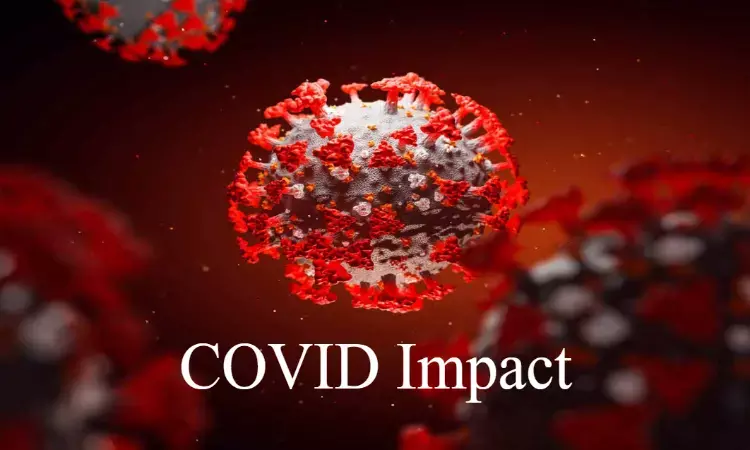- Home
- Medical news & Guidelines
- Anesthesiology
- Cardiology and CTVS
- Critical Care
- Dentistry
- Dermatology
- Diabetes and Endocrinology
- ENT
- Gastroenterology
- Medicine
- Nephrology
- Neurology
- Obstretics-Gynaecology
- Oncology
- Ophthalmology
- Orthopaedics
- Pediatrics-Neonatology
- Psychiatry
- Pulmonology
- Radiology
- Surgery
- Urology
- Laboratory Medicine
- Diet
- Nursing
- Paramedical
- Physiotherapy
- Health news
- Fact Check
- Bone Health Fact Check
- Brain Health Fact Check
- Cancer Related Fact Check
- Child Care Fact Check
- Dental and oral health fact check
- Diabetes and metabolic health fact check
- Diet and Nutrition Fact Check
- Eye and ENT Care Fact Check
- Fitness fact check
- Gut health fact check
- Heart health fact check
- Kidney health fact check
- Medical education fact check
- Men's health fact check
- Respiratory fact check
- Skin and hair care fact check
- Vaccine and Immunization fact check
- Women's health fact check
- AYUSH
- State News
- Andaman and Nicobar Islands
- Andhra Pradesh
- Arunachal Pradesh
- Assam
- Bihar
- Chandigarh
- Chattisgarh
- Dadra and Nagar Haveli
- Daman and Diu
- Delhi
- Goa
- Gujarat
- Haryana
- Himachal Pradesh
- Jammu & Kashmir
- Jharkhand
- Karnataka
- Kerala
- Ladakh
- Lakshadweep
- Madhya Pradesh
- Maharashtra
- Manipur
- Meghalaya
- Mizoram
- Nagaland
- Odisha
- Puducherry
- Punjab
- Rajasthan
- Sikkim
- Tamil Nadu
- Telangana
- Tripura
- Uttar Pradesh
- Uttrakhand
- West Bengal
- Medical Education
- Industry
Healthcare workers on COVID- 19 duty need psychosocial intervention, points IJMR study

New Delhi: The global onset of COVID - 19 has proven to be an overburden, drastically affecting the mental state of millions of healthcare workers and their families. Findings from a recent study indicate the need for psychosocial intervention in order to maintain a healthy working environment.
In the study conducted by the ICMR, an insight into the psychosocial challenges faced by the Indian healthcare workers related to their work, family, and personal well-being and the associated stigmas have been provided. Additionally, the coping mechanisms adopted by them and their perceptions on the interventions to address these challenges were also explored.
The study has been published in the Indian Journal of Medical Research and was conducted between the month of September and December 2020 through in-depth telephonic interviews using an interview guide among 111 healthcare workers who were involved in COVID-19 management across 10 States in India aiming to demonstrate the psychological burden of healthcare workers engaged with COVID-19 care services.
The results of the study indicate major changes in the work-life environment of the healthcare worker which includes:
● excessive workload
● erratic timings accentuated with the extended duration of inconvenient personal protection equipment usage
● periods of quarantine and
● long duration of separation from family. (Family-related issues were increased by manifolds; the main challenge being parting away from the family, caregiving, especially for females with infants and children, and fears around infecting family and the close ones.)
● Stigma from the community and peers fuelled by the fear of infection was manifested through avoidance and rejection.
The researchers concluded that in addition to the hurdles faced by the front line warriors the study findings also point to need-based psychosocial interventions at the organizational, societal, and individual levels. This includes a conducive working environment involving periodic evaluation of the healthcare worker problems, rotation of workforce by engaging more staff, debunking of false information, community and healthcare worker involvement in COVID sensitization to allay fears and prevent stigma associated with COVID-19 infection/transmission, and finally need-based psychological support for them and their families.
Reference:
Chakma T, Thomas BE, Kohli S, Moral R, Menon GR, Periyasamy M, Venkatesh U, Kulkarni RN, Prusty RK, Balu V, Grover A, Kishore J, Viray M, Venkateswaran C, Mathew G, Ketharam A, Balachandar R, Singh PK, Jakhar K, Singh S, Devi R, Saha KB, Barde P, Singh R, John D, Mishra BK, Yadav J, Agarwal S, Rao VV, Panda S. Psychosocial impact of COVID-19 pandemic on healthcare workers in India & their perceptions on the way forward - A qualitative study. Indian J Med Res. 2021 Oct 1. doi: 10.4103/ijmr.ijmr_2204_21. Epub ahead of print.
Medical Dialogues Bureau consists of a team of passionate medical/scientific writers, led by doctors and healthcare researchers. Our team efforts to bring you updated and timely news about the important happenings of the medical and healthcare sector. Our editorial team can be reached at editorial@medicaldialogues.in.
Dr Kamal Kant Kohli-MBBS, DTCD- a chest specialist with more than 30 years of practice and a flair for writing clinical articles, Dr Kamal Kant Kohli joined Medical Dialogues as a Chief Editor of Medical News. Besides writing articles, as an editor, he proofreads and verifies all the medical content published on Medical Dialogues including those coming from journals, studies,medical conferences,guidelines etc. Email: drkohli@medicaldialogues.in. Contact no. 011-43720751


